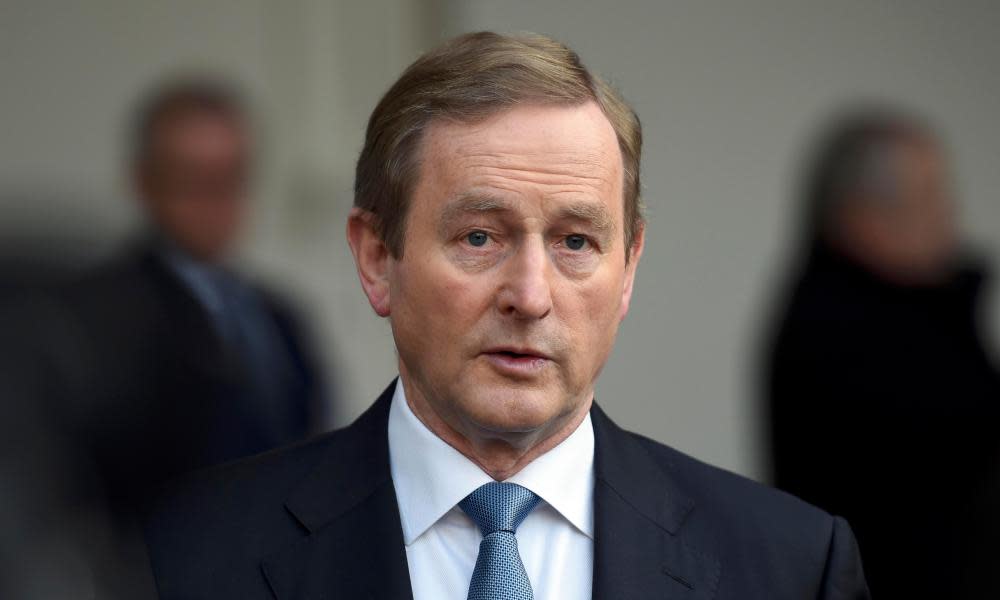Ireland PM Enda Kenny expected to resign over police scandal

Enda Kenny is expected to step down as prime minister of Ireland next month after severe criticism of his handling of a crisis in the Irish police force.
Kenny, who last year became the first Fine Gael leader to win a second term as prime minister, will outline his plans at a party meeting in Dublin on Wednesday.
A spokesman declined to comment on the agenda or possible outcome of the meeting, but party sources indicated that Kenny would move aside after his visit to Donald Trump at the White House to mark St Patrick’s Day on 17 March.
The main contenders to succeed Kenny as prime minister of a minority government are Simon Coveney, 44, the housing minister, and Leo Varadkar, 38, the minister for social protection.
Speaking on RTE radio on Monday, Coveney signalled that a contest to replace Kenny was likely to start but Kenny would not be subjected to an internal party coup.
Referring to Kenny’s forthcoming visit to the US, Coveney said: “I think after that visit you will see, I hope, an orderly and quite a quick transition to new leadership within Fine Gael.”
The policing controversy centres on unfounded allegations made against a police whistleblower and claims that he was smeared by senior figures in government.
Sgt Maurice McCabe has raised serious charges of corruption, namely that officers failed to prosecute influential people charged with offences including traffic violations. McCabe’s allegations suggested that “friends in high places” in the Republic were being “let off” traffic offences.
The 55-year-old said he and his wife had been subjected to a “long and sustained campaign to destroy our characters” for raising allegations of secrecy and corruption within the force.
Three years ago, Alan Shatter, a former justice minister, resigned after a state-commissioned report found that the government and the police had failed to properly address McCabe’s allegations.
In 2006 he was cleared of a complaint about an allegation of child abuse but was subsequently accused once more of the crime.
In 2013 McCabe’s name mistakenly appeared on a state-sponsored child protection agency website. The ensuing controversy shook the Fine Gael-led coalition and almost precipitated a general election, as further claims of smear tactics against the police officer emerged.
Kenny told parliament last week the allegations against McCabe were “appalling” and he apologised for the hurt caused to him and his wife.
The crisis of confidence in policing and the justice system has also put the position of the police chief, Noirín O’Sullivan, in doubt.
Supt David Taylor, a former chief of the police press office, has claimed the existence of a smear campaign against McCabe was widely known within the force and by his superiors, including O’Sullivan. O’Sullivan has vigorously denied the allegations.
Taylor was suspended two years ago on charges that he had illegally leaked information to journalists in Dublin. Under the Police Act 2005, a member of the force can be sacked, fined or even imprisoned for unofficially leaking information to the media.
Taylor has always protested his innocence, and last week the director of public prosecutions dropped all charges against him and he can now return to his job on full pay.
Fianna Fáil, the main Irish opposition party, has declined to pull the plug on the Fine Gael minority government. Since the 2016 general election, Fianna Fáil has pursued a policy of critical support for the coalition.

 Yahoo News
Yahoo News 
